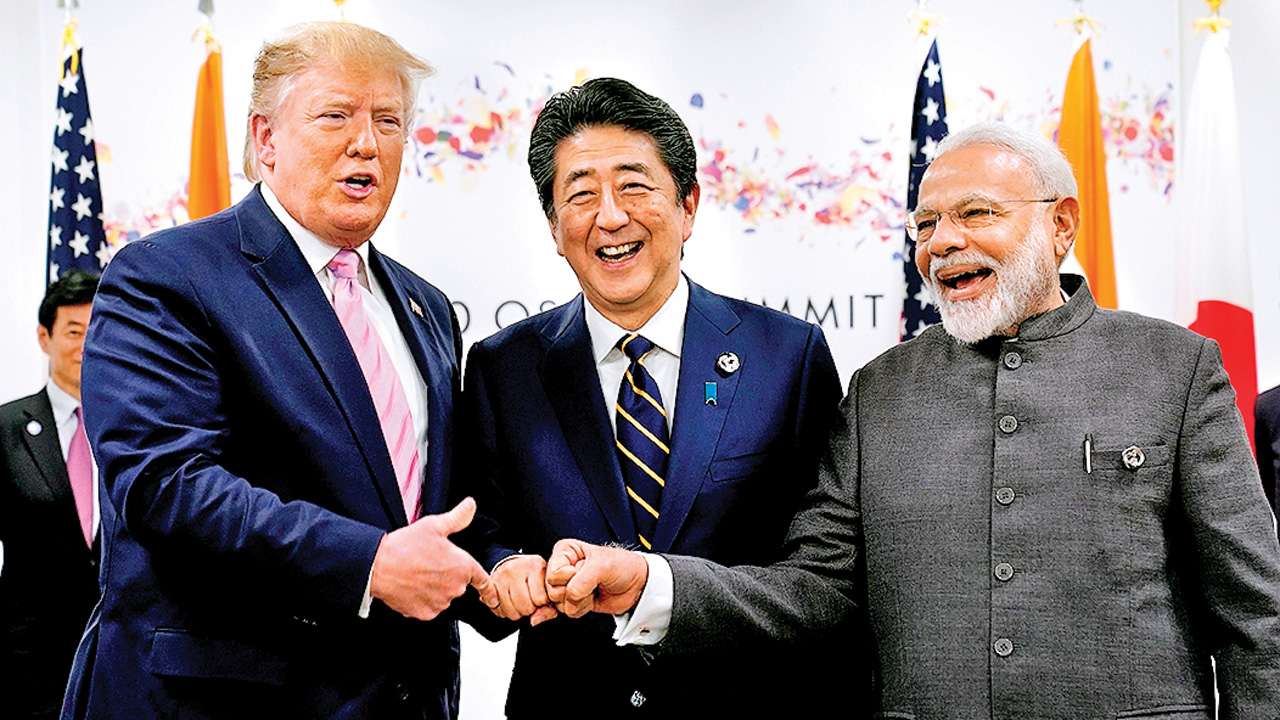
Rebalancing is the new mantra of statecraft and reset is the new form of global rapprochement. Therefore, Prime Minister Narendra Modi pitched for as many as 20 meetings, including nine bilaterals and eight pull-aside engagements, with his global counterparts. On the sidelines of the G20 summit at Osaka, Japan, were varied groupings: Russia-India-China, Japan-US-India and Brazil-Russia-India-China-South Africa. It offered, once again, good optics for the creation of a multilateral system of partnerships with various countries and international organisations.
All great powers realise that the era of super-power domination is over, and with the emergence of new power centres like China, India and Japan, new rules of the game and new terms of engagement need to be chalked out. Forums like G20 are critical for constructing a multi-polar and democratic order, which would guarantee each country — large or small — peace, security, justice and development in order to address challenges like climate change, corruption, pollution, terrorism, technology sharing and data flow management, among others.
In the wake of the financial woes of the West and its increasingly protectionist tendencies of late — Brexit in the UK and the triumphalism of Donald Trump — one can notice a common trend that arises out of part distrust and part national interest. No more prominent example of global rebalancing may be cited than China’s Belt and Road Initiative (BRI) against the backdrop of the US’s ‘Pivot to Asia’ that Beijing intuitively believes to be especially devised to contain its rise.
How is the rebalancing working out? US allies in Asia, connected to and militarily aligned with the pivot, are absolutely okay with engaging economically with China, a phenomenon that seeks to strike a balance between the regional and global geo-economic and geostrategic priorities. The hegemonic struggle between the US and China to stake control over Asia and the world notwithstanding, nations are trying hard to hold on to their values and diplomats are honing their skills on economic statecraft.
Is rebalancing, then, the other name of strategic promiscuity? In a way, it is. Because being close to another country does not necessarily mean hostilities against a third country. Rebalancing, therefore, is more akin to focusing on areas of respective and mutual convergence. That’s where it syncs with national interest. While the reasons for US foreign policy to focus on Brazil, India, Indonesia and Turkey is ascribed to their fluid and open approach to the international order than those of China or Russia, the real factor could be to reduce China’s global clout by fostering partnerships with existing and rising great powers.
Russia, in turn, has been trying to counterbalance the USA’s global leadership by cooperating with China on issues relating to state sovereignty, strengthening the UN Security Council, and pitching for a multi-polar world order wherein no single state assumes a paramount position vis-à-vis the others in world affairs. Despite paeans sung on the merits of multilateralism, it is natural that a leader in power would pursue policy based on his/her perception of national interest. Napoleon justified his campaign against Russia, and later his act to launch the desperate battle at Waterloo, on the plea that he was acting in the interest of France; Hitler was said to be acting in Germany’s national interest on grounds of which he justified his expansionist policies, including annexation of Austria and the breakup of Czechoslovakia (1938). British Prime Minister Neville Chamberlain justified his act of currying favour with Hitler and Mussolini on the pretext that such appeasement was in Britain’s national interest. Prime Minister Narendra Modi recently justified demonetisation as a move taken in “national interest” and not for “political gains”, arguing that it was a step to fight black money.
It is par for the course, then, that during a recent extensive bilateral meeting in New Delhi, India’s external affairs minister S Jaishankar reconfirmed to his American counterpart, Mike Pompeo, about the Indian imperative to act in its national interest and nurture the time-tested, history-honoured relationships with many countries, including Russia and Iran. India is also engaging more actively with Japan, while taking care not to antagonise China, which is another deft exercise of rebalancing.
Author is a commentator on geo-political affairs